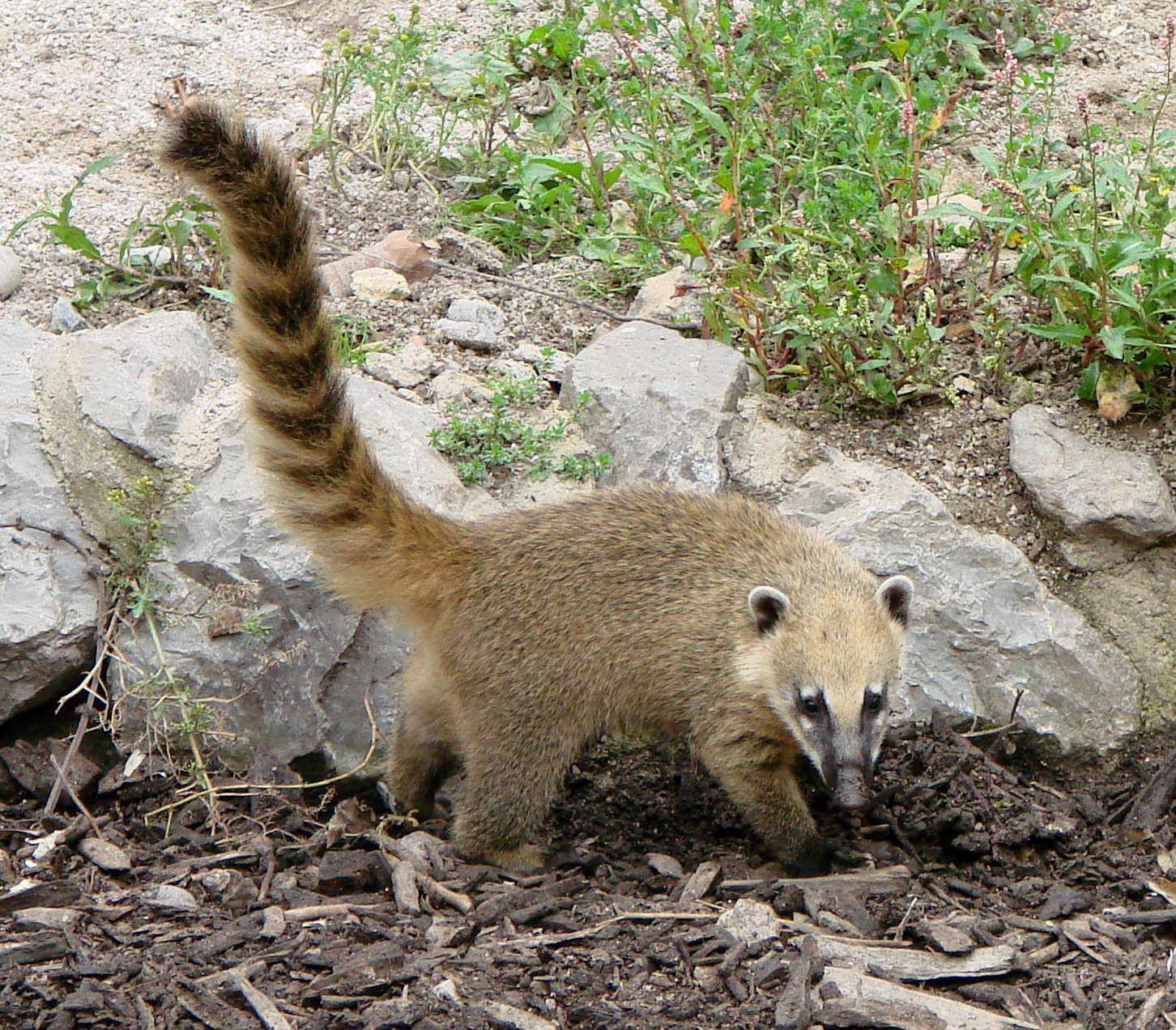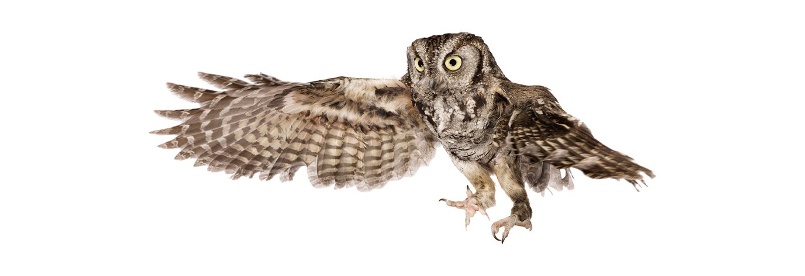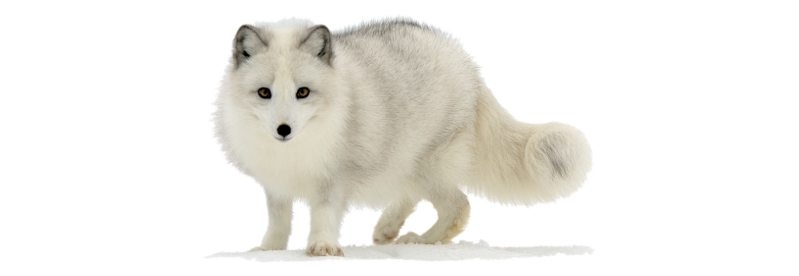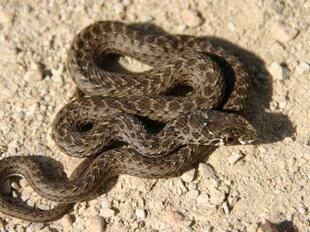
South American coati(Nasua nasua)
Phylum —chordata
Class — mammalia
Order — carnivora
Family — procyonidae
Genus – nasua
Appearance
Coati upper parts are dark brown, gray, or dark or brightly rust colored. The underparts are white. The head is narrow with the nose slightly turned upward and elongated, and is very flexible, allowing coatis to search out food under leaf litter and overturned debris. The muzzle is brown with pale spots above, below, and behind the eye. The ears are small and fringed with white on the inside rims. The long tails of coatis are used for balance, and are black to brown with yellow rings. The young are not as darkly colored as adults.
Adults measure 41 to 67 cm from head to the base of the tail, with the tail adding an additional 32 to 69 cm to their length. These animals are about 30 cm tall at the shoulder, and weigh between 3 and 6 kg. Coatis have strong claws and forelimbs to climb and dig out food from under rotted logs. They can reverse the joints of the anklebone to descend trees headfirst.
Habitat
South American coatis are found in tropical and subtropical South America ranging from Colombia and The Guianas south to Uruguay and northern Argentina.
Behavior
South American coatis are diurnal animals, and they live both on the ground and in trees. They typically sleep in the trees. When foraging, they search for fruit in trees high in the canopy and use their snouts to poke through crevices to find animal prey on the ground. They also search for animal prey by turning over rocks on the ground or ripping open logs with their claws.
Females typically live in large groups, called bands, consisting of 15 to 30 animals. Males, however, are usually solitary. Solitary males were originally considered a separate species due to the different social habits and were called "coatimundis", a term still sometimes used today. Neither bands of females nor solitary males defend a unique territory, and territories therefore overlap. South American coatis communicate with the help of soft whining sounds and alarm calls that sound as loud woofs and clicks. When an alarm call is sounded, coatis typically climb trees, and then drop down to the ground and disperse.
Diet
South American coatis are omnivorous and primarily eat fruit, invertebrates, other small animals and bird eggs. Their diet includes larval beetles, centipedes, scorpions, spiders, ants, lizards, termites, rodents, chickens and even carrion when it is available.
Reproduction
South American coatis have a polygynandrous mating system in which females mate with multiple males. The breeding season varies with location, usually when the fruit is in season (October-March). The gestation period lasts around 77 days. Females give birth to 2-4 kits at a time, which is raised in a nest in the trees for 4-6 weeks. During this time females leave the groups and stay with their newborn young until they are able to walk and climb. At 4 months of age, kits will be weaned and will start eating solid food. Young females become reproductively mature at 2 years of age and tend to remain with the group they were born in but males generally disperse from their mothers' group after 3 years.
South American coatis generally live for up to 7 years in the wild, but can live up to 14 years in captivity.
In captivity
Coatis are high-energy animals that need a lot of space, especially at a young age. Even with appropriate housing, some coatis can become stressed; the result can be poor health and low energy.
Ideally, coatis should have a large indoor and outdoor enclosure that should be at least 10-foot, cubed. Equip the cages with toys and challenging climbing areas to keep your pet engaged and active. Another good enclosure option is repurposing a walk-in aviary (formerly used for parrots, wild birds, or small flocks).
Coatis are intelligent animals. With training and patience, they can be litter trained. Some owners do put their coatis on leashes and take them outdoors, though this can be tricky if the coati becomes stubborn and refuses to comply with commands.
It's not advisable to keep a coati loose indoors. It will damage your home and may injure itself.
Pet coatis abide by a strict diet. Your pet will require measured dietary ratios of fruits to vegetables to proteins and carbohydrates:
- 60% high-grade, grain-free dog food;
- 10% fresh fruit;
- 20% poultry, beef, or eggs;
- 10% vegetables (and more as necessary).
Treats can include gut-loaded crickets and mealworms, cereal, or crackers. Coatis favor prickly pear fruits; they are a great option as a training reward.
Avoid overly sweet or salty foods when giving your coati treats. Diseases related to poor diets, food aggression, or picky eating can develop if you spoil your coati with these foods.
When feeding coatis, scatter food about their enclosure and hide it inside and under objects to encourage natural foraging behavior. Feed at least twice a day and add a third feeding if it appears to continue to forage for food.
Use heavy bowls made from metal or a sturdy, non-chewable plastic for water and wet foods. Small pools with running water work well as a watering hole. Clean and disinfect all food and water containers daily.
 Russian
Russian
 English
English
























